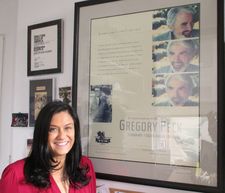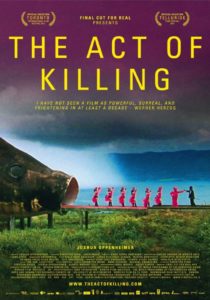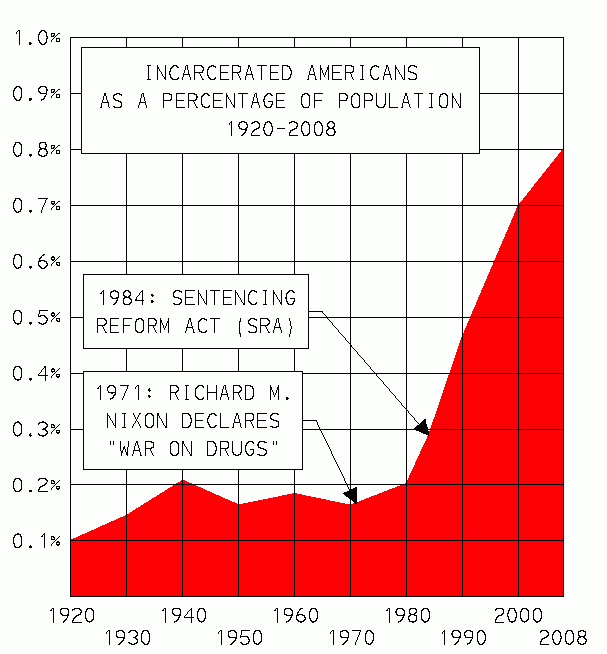
Three hundred thousand West Virginia residents were left without water for 6 days after 7,500 gallons of a coal cleaning chemical known as ‘Crude MCHM’ leaked into the Elk River. The spill took place a mile and a half upstream, from where parts of West Virginia get its drinking water. For more on this, we are joined by meteorologist Mark Thompson.
Listen to the original broadcast
David: Mark 300,000 residents were told not to drink their tap water. Was this just a precautionary step?
Mark Thompson: Absolutely not. There’s actual video on YouTube of West Virginia residents getting water from the tap, and then literally setting it on fire. And by the way, boiling the tap water doesn’t make it any safer.
David: I would think boiling the tap water is even more dangerous. I’m not so sure you want it anywhere near a flame.
Mark Thompson: This is really serious; 700 people were reported sick. This stuff is also being found in the air, not just the water. This chemical release is widespread. The big thing about this chemical is that we don’t really know a lot about it. It was grandfathered into the original regulations governing toxic chemicals and their use.
David: This chemical, MCHM, which by the way is also my rap name, MCHM . . .
Mark Thompson: [laughs] I missed that album.
David: Yeah. MCHM is my rap name. Can I sue the manufacturers, just for copyright infringement? I’m kidding. This is . . .
Mark Thompson: Why not? They’ll be getting a lot of lawsuits in the meantime, why not add your name? The company is Liberty.
David: Okay. So this MCHM is used to clean coal?
Mark Thompson: That’s exactly right. It’s used to separate the stuff that’s usable fuel from the stuff’s that not.
David: Coal is dirty. We’re told natural gas is cleaner, but natural gas requires fracking, which involves pumping millions of gallons of chemicals into the ground. These chemicals are known carcinogens. The fracking industry assures us there’s nothing to worry about, because they do a ‘terrific job policing themselves.’ How good a job did the chemical industry in West Virginia do policing themselves?
Mark Thompson: The chemical industry, the oil industry, the natural gas industry, none of them do a job at all, in terms of policing themselves. They use whatever chemicals they want for these toxic brews which separate the usable oil. And fracking, because you mentioned it, is an identical scenario to what’s going on right now in West Virginia. It’s a terrific parallel, because it’s another way in which chemicals we know nothing about are shot into the ground and then end up leaching into the tap water.
Sadly federal regulations are so relaxed, that the EPA doesn’t even require many of the fracking companies to reveal the substances that are mixed into the water that’s shot down to get that oil out of the ground.
David: Tell me about the Toxic Substances Control Act.
Mark Thompson: That is the main umbrella safety act designed to regulate the chemicals used, in all industry, really, but in this scenario in West Virginia. But it doesn’t even specify the use of this chemical, which is poisoning all these people. Meaning it first went into effect in the 70’s and MCHM was just grandfathered in with no vetting. So this ‘self-policing’ that’s suggested is a bankrupt notion. It doesn’t happen. There’s a toxic brew going down that is being watched and policed by no one.
David: MCHM was grandfathered in? Never vetted?
Mark Thompson: That’s correct.

300,000 residents were told not to drink their tap water, as well as wash their clothes or bathe in it.
David: Did the residents of West Virginia even know that that chemical was sitting there?
Mark Thompson: Well, I think they’re two things they didn’t know. First of all, they didn’t know how dangerous MCHM is because there’s little or no safety data on it. And number two, did anyone ever say, ‘Oh, by the way, all of your water could be contaminated, should this ever get into the water supply.’ I mean, had residents known that, would they have been okay with it? If you know and must use this chemical, and I suggest that it shouldn’t be used at all, but if it must be used in this horribly dirty process of getting coal energy out of the ground and cleaned, well then at lease provide for safety measures such that those chemicals don’t contaminate water supplies.
David: Republicans repeatedly say they want to eliminate the Environmental Protection Agency. If the Environmental Protection Agency were eliminated, who from the government would be looking into the effects of these chemicals?
Mark Thompson: Exactly. I mean, the Environmental Protection Agency has already been gutted, and Barrack Obama, even as a democrat, because you talk about the republicans, certainly both parties are dismantling those programs. And they’ve already done it quite effectively.
I mean, the Environmental Protection Agency is asleep at the switch. They have to provide evidence that the chemical can pose a risk to begin with, and they don’t have any safety data on it. So in other words, this chemical was grandfathered in. They are closing the barn door after the horses are out. This Toxic Substances Control Act has to be overhauled. It has to provide information about these chemicals that are used in so many different dirty energy operations, because you’re going to see more and more of this.
And by the way, you’re already seeing more and more of it. Arkansas residents are still suffering from the situation involving that tar sands spill that happened over the summer. That just happened. Only a few weeks ago, in North Dakota, 400,000 gallons of crude oil spilled during that train crash. And after it spilled, it exploded. It sent a toxic plume into the sky. They had to evacuate 1,400 residents because of the health threat.
So this self-policing energy policy that we have, the presumption that any of these companies are going to self-police is ridiculous. And unfortunately, we’re seeing the disastrous results played out month after month.
David: Mark Thompson, thank you for joining us.
Listen to the original broadcast
What do you think about the dangers of fracking? I’d like to hear. Please share your comments below.





















